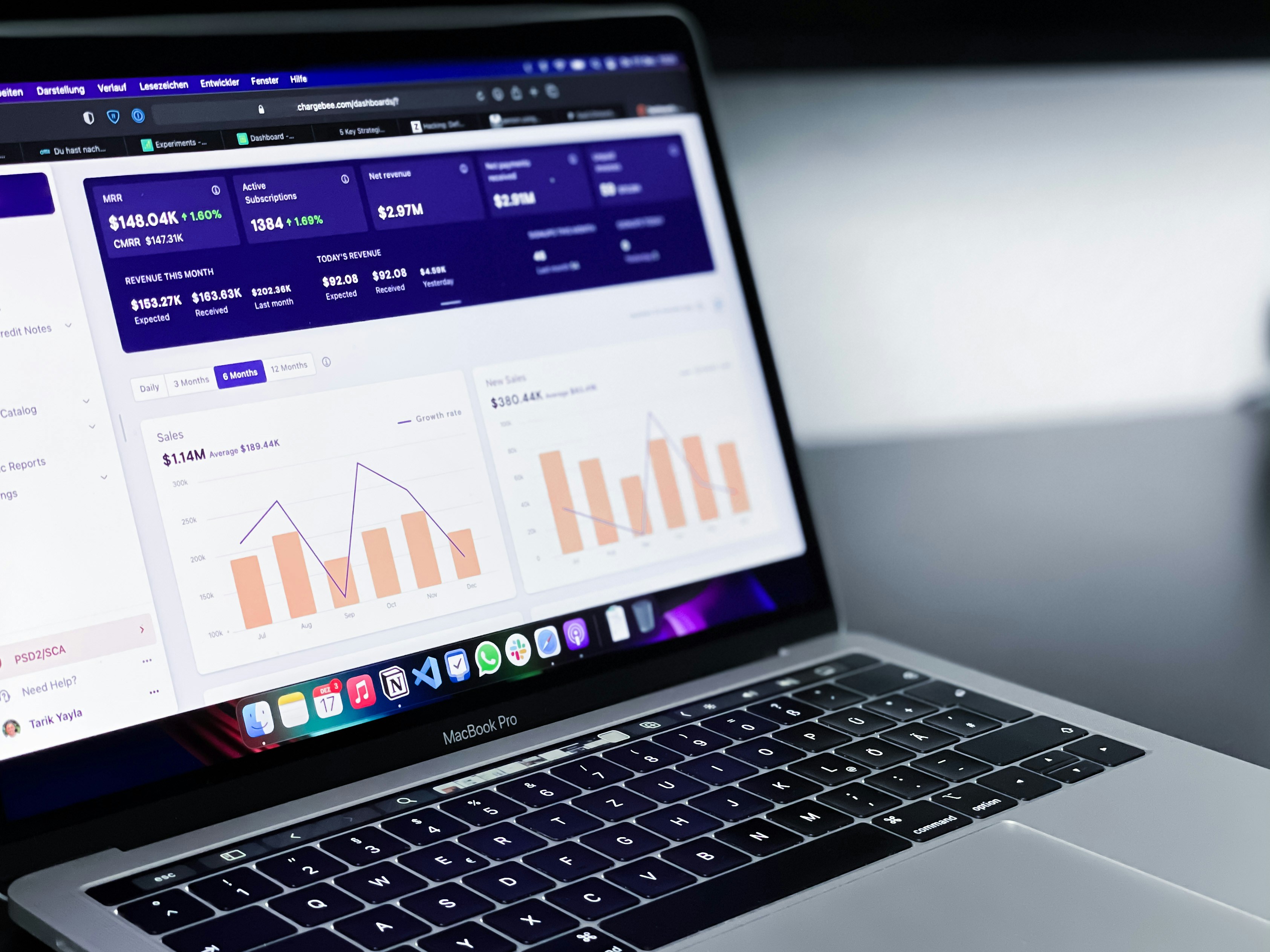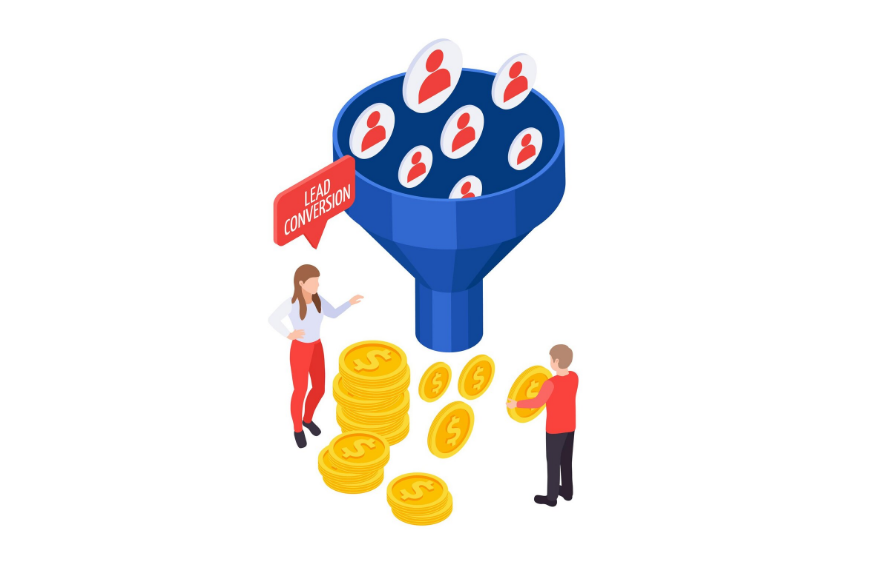Table of Contents
- Introduction to AI-Powered Sales Intelligence
- The Importance of Sales Intelligence in B2B
- Key Features of AI-Powered Sales Intelligence Tools
- Benefits of Utilizing AI-Powered Sales Intelligence
- Challenges and Considerations When Implementing AI Solutions
- How to Choose the Right AI-Powered Sales Intelligence Tool
- Implementing AI-Powered Sales Intelligence: Best Practices
- Future Trends in AI-Powered Sales Intelligence
- Conclusion: Embracing AI for Sales Success
Introduction to AI-Powered Sales Intelligence
In the rapidly evolving landscape of business-to-business (B2B) sales, the integration of artificial intelligence (AI) has become increasingly relevant. AI-powered sales intelligence refers to the use of advanced algorithms and machine learning techniques to analyze data, streamline processes, and enhance decision-making in sales strategies. This innovative approach is fundamentally transforming the way B2B teams operate, providing them with tools and insights that were previously unimaginable.
Today, organizations are inundated with vast amounts of data, making it challenging to extract actionable insights efficiently. AI-powered sales intelligence addresses this challenge by harnessing data analytics to identify patterns and trends, enabling sales teams to make informed decisions based on real-time information. This intelligent approach not only aids in understanding customer behavior but also forecasts trends, allowing businesses to adapt their strategies proactively.
The implications of AI technology in sales are profound. It shifts the focus from traditional methods, often characterized by guesswork and intuition, to data-driven decision-making that enhances accuracy and efficacy. With AI tools, B2B teams can gain a competitive edge, improve lead generation, and personalize customer interactions, ensuring that sales efforts are tailored to meet specific needs. Moreover, through automation of routine tasks, sales professionals can dedicate more time to engaging with clients and closing deals, thus optimizing their productivity.
As we delve deeper into this blog post, readers can anticipate a thorough exploration of how AI-powered sales intelligence can reshape sales processes, the types of tools available, and the best practices for implementing these technologies effectively. Understanding this crucial area will empower B2B teams to leverage AI in ways that maximize their success and drive sustainable growth.
The Importance of Sales Intelligence in B2B
In the rapidly evolving landscape of B2B commerce, the significance of sales intelligence cannot be overstated. Sales intelligence encompasses the tools and strategies that empower teams to gather, analyze, and act upon data-driven insights. B2B sales teams that leverage these insights are better equipped to navigate the complexities of the marketplace, ultimately leading to enhanced performance and improved outcomes.
The absence of effective sales intelligence tools presents significant challenges. Without these resources, sales teams often find themselves struggling to glean critical insights about their prospects and customers. This can lead to missed opportunities, as valuable leads may go unaddressed or mismanaged. Additionally, manual processes can consume substantial time and resources, resulting in inefficiencies that hinder a team’s ability to meet their sales targets. Teams relying on traditional sales methods are at a distinct disadvantage; they may lack the real-time data necessary to understand market trends and customer needs.
Moreover, in industries where competition is fierce, the need for actionable insights becomes even more pronounced. B2B organizations must not only identify prospects but also understand their preferences and behaviors to tailor their offerings effectively. Utilizing sales intelligence helps in crafting personalized approaches that resonate with potential clients, thus driving higher conversion rates. Sophisticated data analytics can reveal patterns and trends that otherwise might remain hidden, facilitating a proactive approach to sales strategies.
Consequently, embracing sales intelligence is not only about adopting new technologies; it is about cultivating a culture of data-driven decision-making that can help organizations thrive. Teams that invest in effective sales intelligence tools gain a competitive edge, enabling them to respond swiftly to changes in the market and customer expectations. In summation, the integration of sales intelligence into B2B operations transcends mere advantage; it is becoming an essential component of sustained success in today’s business environment.

Key Features of AI-Powered Sales Intelligence Tools
In the modern sales landscape, AI-powered sales intelligence tools have become essential for B2B teams looking to enhance their performance. Among the key features of these tools, predictive analytics stands out as a game changer. By leveraging historical data and machine learning algorithms, predictive analytics can forecast potential customer behavior and future sales opportunities, allowing teams to proactively tailor their strategies and nurture leads effectively.
Another vital feature is automated lead scoring, which utilizes AI algorithms to evaluate and rank leads based on various criteria, including engagement level, past purchasing behavior, and demographic information. This systematic approach streamlines the sales process, enabling sales representatives to focus on the most promising leads and allocate resources more efficiently. With automated lead scoring, B2B teams can expect improved conversion rates and a higher return on investment.
Customer profiling is an equally important aspect of AI-driven sales intelligence. These tools can analyze vast amounts of customer data to create detailed profiles, encompassing behavioral patterns, preferences, and pain points. By gaining a deeper understanding of their target audience, sales teams can customize their pitches and solutions, ultimately leading to a more personalized customer experience. Furthermore, a robust customer profile empowers companies to identify cross-selling and upselling opportunities that can drive additional revenue.
Lastly, the capability for real-time data analysis provides B2B teams with actionable insights at their fingertips. Having access to up-to-the-minute information allows sales professionals to respond quickly to market changes and customer needs. The integration of AI into real-time data analysis not only enhances decision-making but also ensures that companies stay ahead of their competition. Together, these features of AI-powered sales intelligence tools create a powerful foundation for enhanced sales performance and informed strategic planning.
Benefits of Utilizing AI-Powered Sales Intelligence
Integrating AI-powered sales intelligence into B2B operations presents a myriad of benefits that can significantly bolster the effectiveness of sales teams. One of the most prominent advantages is the increased sales efficiency that AI tools facilitate. By automating repetitive tasks, such as data entry and lead qualification, sales professionals can devote more time to high-value activities, thereby enhancing productivity and streamlining processes.
Improved targeting of leads is another critical benefit. AI algorithms analyze vast amounts of data to identify prospects that are most likely to convert, using criteria such as behavioral patterns, demographic information, and engagement metrics. This targeted approach minimizes the time spent on unqualified leads, allowing sales teams to focus their efforts on high-potential opportunities. According to a report by McKinsey, companies that employ AI in lead scoring and segmentation report a 30% increase in lead conversion rates.
Moreover, AI-powered sales intelligence provides enhanced customer insights. By leveraging machine learning and analytics, B2B teams can gain a deeper understanding of customer preferences, pain points, and buying behaviors. For instance, AI tools can segment customers based on previous interactions, which helps in creating personalized outreach strategies that resonate with those segments. This personalization not only strengthens customer relationships but also fosters loyalty and retention.
Better forecasting is an essential aspect of the sales cycle that AI can dramatically improve. Advanced predictive analytics allow for accurate forecasting of sales trends and potential revenue growth. With tools that analyze historical data and market conditions, B2B teams can make informed decisions and adjust strategies proactively. A study from Salesforce indicates that businesses utilizing AI for forecasting have seen a 20-30% improvement in their forecasting accuracy.
In summary, the benefits of incorporating AI-powered sales intelligence into B2B strategies are manifold, directly contributing to increased efficiency, improved lead targeting, enhanced customer insights, and superior forecasting capabilities.
Challenges and Considerations When Implementing AI Solutions
As B2B teams increasingly turn to AI-Powered sales intelligence, they must navigate a variety of challenges and considerations that accompany this technological transition. One of the most significant hurdles is data privacy. With stringent regulations like GDPR and CCPA in place, organizations must ensure that customer data is handled responsibly. This includes securing explicit consent for data usage and implementing robust data protection measures to avoid breaches that can severely impact their reputation and client trust.
Another critical aspect is the necessity for high-quality data. AI systems rely heavily on large datasets to function accurately and efficiently. If the data fed into these systems is inconsistent, outdated, or inaccurate, the insights generated can be misleading or, in some cases, detrimental to business strategies. Therefore, B2B teams must prioritize data cleaning and validation processes, ensuring that the information driving their AI solutions is both reliable and relevant.
Integration with existing systems also poses a substantial challenge. Many organizations may find that their current software and platforms are not designed to easily accommodate AI technologies. This can lead to increased costs and longer implementation times, as teams need to either adapt their existing systems or invest in new, compatible technologies. To mitigate this issue, it is important for B2B teams to conduct thorough assessments of their current infrastructure and identify potential integration challenges early in the process.
Finally, the importance of training staff should not be overlooked. Employees must be equipped with the knowledge and skills to utilize AI tools effectively. This includes understanding how to interpret AI-generated insights and make data-driven decisions. A focus on continuous learning and development will encourage a culture that embraces AI technology, ultimately enhancing the effectiveness of sales strategies.
How to Choose the Right AI-Powered Sales Intelligence Tool
When selecting an AI-powered sales intelligence tool, B2B teams must consider several critical evaluation criteria that align with their specific requirements. The first fundamental aspect is scalability. As businesses grow, their sales intelligence tools should accommodate increasing data volumes and user activity without a decline in performance. Hence, it’s essential to ensure that the tool can scale effectively, from small to enterprise-level operations.
User-friendliness is another significant factor in the selection process. A modern sales intelligence tool should have an intuitive interface that allows sales teams to navigate seamlessly while minimizing the learning curve for new users. Tools that offer comprehensive training resources and user documentation can further enhance usability, ensuring that teams can fully leverage the software’s capabilities.
Integration capabilities cannot be overlooked when choosing an AI-powered sales intelligence solution. A capable tool should seamlessly integrate with existing customer relationship management (CRM) systems and other essential applications. Evaluate whether the tool can sync with platforms and enhance existing processes, as compatibility with other systems can drastically improve operational efficiency.
Another crucial criterion is the support services provided by the vendor. Reliable customer support can significantly affect user experience and productivity. Evaluate the various support channels available, including live chat, email, and phone support, as well as the vendor’s responsiveness to inquiries. Additionally, reviewing user feedback and case studies can provide insight into how support services operate in real-world scenarios.
Finally, conducting thorough assessments of potential tools through free trials or demos can clarify their fit for the organization. Evaluating tools according to these criteria—scalability, user-friendliness, integration capabilities, and support services—will empower B2B teams to make informed decisions and choose an AI-powered sales intelligence tool that meets their specific needs.
Implementing AI-Powered Sales Intelligence: Best Practices
Integrating AI-powered sales intelligence into B2B organizations requires a strategic and thoughtful approach. The first best practice is to initiate robust planning before the implementation begins. This phase should involve gathering insights about the specific needs of the sales team, as well as the types of data that will be most beneficial for driving effective sales strategies. A well-defined plan ensures that the organization is aligned with its overall business objectives while leveraging AI tools effectively.
Setting clear goals is another critical component of a successful implementation. Organizations should develop SMART (Specific, Measurable, Achievable, Relevant, Time-bound) goals that outline expected outcomes from the use of AI in sales intelligence. This may include increasing lead conversion rates, shortening sales cycles, or enhancing customer engagement metrics. Establishing these targets will help the team measure progress and overall effectiveness more clearly.
Involving key stakeholders throughout the process is also essential. This should encompass not only the sales team but also marketing, customer support, and IT departments. Engaging a diverse group of stakeholders ensures that the AI solutions are tailored to meet the needs of various functions within the organization. It promotes a collaborative environment, which can enhance the adoption and utilization of AI tools across different teams.
Lastly, organizations must commit to ongoing evaluation and adjustment of their strategies. Regularly assessing the performance of the implemented AI-powered sales intelligence tools allows teams to pivot based on what is working and what is not. This iterative process helps refine approaches, ensuring that the techniques used remain effective and aligned with evolving business priorities. By adhering to these best practices, B2B teams can significantly maximize the benefits of their AI tools, leading to improved sales effectiveness and overall growth.
Future Trends in AI-Powered Sales Intelligence
The landscape of sales intelligence is consistently evolving, driven by advancements in artificial intelligence and machine learning. As businesses increasingly harness the power of data, several future trends are poised to reshape the B2B sales environment. Foremost among these trends is the enhanced capability of machine learning algorithms to analyze vast datasets, leading to a more nuanced understanding of customer behaviors and preferences. This improved predictive analysis will enable sales teams to focus their efforts on the most promising leads, thereby optimizing resource allocation.
Personalization will become a cornerstone of AI-powered sales intelligence strategies. Customers today expect tailored experiences, and AI technologies will help sales teams curate individualized selling propositions by leveraging insights derived from complex data patterns. With tools that analyze past interactions and current market dynamics, B2B teams can craft strategies that resonate deeply with target audiences. The ongoing development of natural language processing capabilities will further empower sales teams to engage more effectively, fostering deeper relationships with clients through nuanced conversations.
Moreover, the integration of real-time analytics into sales intelligence platforms will allow for timely decision-making and strategy adjustments. This capability is essential in an environment where market conditions fluctuate rapidly and customer needs evolve constantly. Predictive analytics will not only identify potential sales opportunities but also highlight emerging threats, equipping sales teams with the necessary insights to stay ahead of competitors.
As AI technologies continue to advance, we can anticipate an era where sales strategies are increasingly automated. This automation will not replace the personal touch essential in B2B transactions but will augment sales processes, allowing teams to focus on value-driven engagements. Overall, the future of AI-powered sales intelligence appears promising, with its potential to significantly enhance efficiency, personalization, and overall effectiveness in sales strategies.
Conclusion: Embracing AI for Sales Success
As organizations navigate the complexities of the B2B landscape, the integration of AI-powered sales intelligence emerges as a pivotal strategy. This advanced technology stands at the forefront of transforming traditional sales methodologies, offering unparalleled insights that significantly enhance decision-making processes. B2B teams are encouraged to recognize the competitive advantage brought by adopting artificial intelligence tools aimed at refining lead generation, optimizing sales forecasts, and improving customer relationship management.
One of the most profound benefits of AI lies in its ability to process vast amounts of data with remarkable speed and accuracy. By leveraging machine learning algorithms, sales teams can identify patterns and trends that may not be immediately apparent through manual analysis. This data-driven approach enables more precise targeting of potential clients and fosters stronger relationships with existing customers by predicting their needs and preferences. As a result, organizations can not only increase their sales efficiency but also enhance their overall responsiveness in a rapidly evolving market.
Moreover, adopting AI-powered solutions encourages a culture of innovation within B2B teams. Embracing these technologies signals a commitment to staying ahead of industry curves and adapting to changing buyer behaviors. As teams increasingly rely on data analytics and intelligent insights for strategic planning, they position themselves not just as sales organizations, but as agile entities fully equipped to meet client demands. Thus, investing in AI for sales intelligence is not merely an option; it is an imperative for those looking to achieve long-term sales success.
To consolidate this journey towards AI-enhanced sales processes, we invite readers to explore additional resources and tools available in this field. Continuous learning is essential in making informed decisions about technology adoption. The future of B2B sales is within reach, and with AI as an ally, the possibilities for growth are limitless.






Leave a Reply